Addressing complex sustainability challenges is more urgent and important than ever, particularly within Canada’s agri-food system.
While the system is one of the most economically efficient in the world, the way we produce and consume food is unsustainable. We are generating an enormous amount of greenhouse gas emissions, destroying ecosystems, and wasting vast quantities of resources while millions experience food insecurity.
We need a new food system that delivers universal access to affordable, nutritious food produced within the ecological limits of the planet. Canada can be a leader in this transition, but systemic change is required to make that a reality.
The BSV Centre’s mission
To strengthen change-seekers’ capacity to create thriving communities capable of advancing the transition toward a regenerative future. We aim to play a catalytic role in transforming Canada’s agri-food system with a three-pronged strategy:
- Nurturing farmer communities of practice;
- Mobilizing change-ready businesses to foster regenerative value chains; and,
- Equipping entrepreneurs with an eco-effective mindset.
These three strategic elements will deliver impactful outcomes by motivating and enabling farmers and businesses across the agri-food system and leveraging Ivey’s key areas of expertise: shifting decision-making principles, strategies, operations, and relationships toward a regenerative future. The key insights from this work can also be applied to support transitions in other sectors of the economy.
If you are interested to know more about BSV's work in the agri-food sector, please contact sustainability@ivey.ca
Overcoming Barriers To Change
Currently, a range of efforts are making progress across the Canadian agri-food system, from grassroots community efforts to major national initiatives. However, the pace and scale of this change is insufficient. We see three key barriers that need to be addressed to accelerate systemic change, that Ivey and the BSV Centre have the tools and capabilities to act on now:
Poor Collaboration
Farmers may be connected through digital platforms, but they struggle to work together effectively because they compete for land and resources, and operate in siloed value chains. As a result, they struggle to collaborate and share knowledge regionally.
Concentrated Power Structures
The centralized supply chains and concentrated power structures of the contemporary food system do not encourage sustainable food production, and the ideal economics of sustainable food production are yet to be realized.
Efficiency Mindset
The current business mindset prioritizes short-term efficiency and profit. As a result, many innovations fail to deliver long-term societal impact, and instead often perpetuate systems that are misaligned with the well-being of people and the planet.
Tackling these barriers requires not only changing practices, but also understanding and challenging underlying structures, models, and institutions.
The BSV Centre, with its unique interdisciplinary expertise, is pioneering innovative approaches to engage and strengthen systems change-makers to overcome these barriers, while enabling them to take new models and solutions to scale.
We are actioning this approach through our impact-focused Lighthouse Initiatives.
Lighthouse Initiatives
To focus and direct our efforts, the Centre has developed four “lighthouse initiatives”. These lighthouse initiatives are designed to maximize impact on the agri-food system through our key levers of change and provide opportunities to engage and mobilize changemakers within the system.
These initiatives focus on two complementary system entry points: “bottom up” and “top down”. Our two bottom-up initiatives focus on engaging with the agri-food system at the operational, farm level, building on Ivey’s expertise in action research within real system actors and value chains, as well as our widely recognized leadership in entrepreneurship. These initiatives aim to help farmers, agronomists, and entrepreneurs to co-create new ways of farming and co-managing resources, leading to the organic institutionalization of sustainable agriculture:
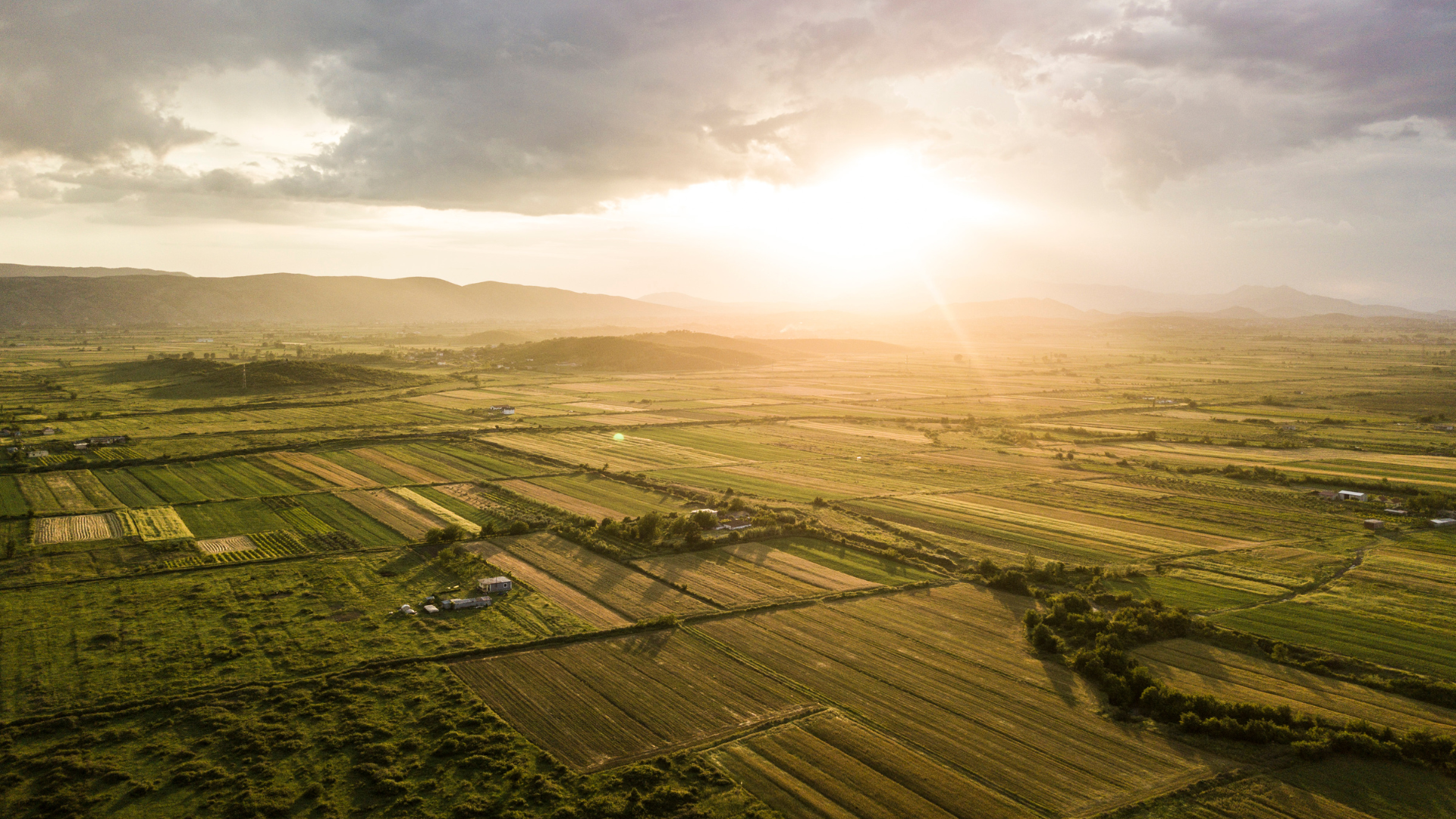
Collective Action for Regenerative Agriculture Program
Canada plays a vital role in the agricultural sector. Farming has modernized to make food more affordable and accessible for a growing population, but its strong GDP contribution comes at a significant environmental cost. Accounting for nearly 10% of national greenhouse gas emissions, the agricultural industry must find a way to produce more sustainably while continuing to put affordable food on Canadian tables. Today, agriculture is subject to poor connectivity, increasing market pressures, supply chain consolidation, and competition for resources. These factors coalesce to hinder circularity, diversity, and inclusivity in the industry, and practices that were once common, like land and resource co-management, have diminished among Canadian farmers. Our project aims to stimulate collective action at the county level in consultation with a diverse group of farmers and agronomists, motivated to advance regeneration.
Regenerative Agriculture is a recent term that finds its origins in Agroecology, a type of farming that applies ecological concepts and principles. Regenerative agriculture focuses on soil health and ecosystem regeneration through 1) minimize soil disturbance; 2) protect soil surface; 3) maintain living roots; 4) ensure crop diversity; 5) integrate livestock. Regeneration also acknowledges the importance of promoting transparent supply chain structures that guarantee a just income to farmers as well as the rights of consumers to control their food and nutrition. Regenerative agriculture is inclusive, in that it should ensure that the rights to use and manage lands, territories, waters, seeds, livestock, and biodiversity are in the hands of those who produce food, sustainably.
We will connect unique perspectives to foster conversation and foment a shared vision of sustainability in the region. Our program will utilize in-person workshops, digital tools and other resources to harness existing connectivity areas to drive the co-creation of new, sustainable ways of farming and co-managing resources across otherwise siloed communities.

Entrepreneurship and Sustainability Accelerator ("Regenerator") Initiative
In collaboration with the Morrissette Institute for Entrepreneurship, the Centre, with the leadership of Oana Branzei, will introduce a dedicated green stream within the Western Accelerator, dedicated to sustainable agri-food and bio-economy start-ups. This green stream "Regenerator" is an impact-driven program aimed at accelerating the growth of high-potential ventures. Through a 16-week intensive program, selected ventures receive hands-on mentorship and educational training from in-house experts and industrial partners. The program is designed to compress years of accumulated knowledge and learning into four months, enabling entrepreneurs to accelerate their ventures' life cycles. These ventures will help promote a just transition to net zero and a regenerative, circular economy through sustainable finance and offer real-time examples of entrepreneurship and innovation aligned with the 2030 agenda and 2050 plans.
These direct interventions will be complemented by two top-down initiatives that engage with the “big picture” of the agri-food system, leveraging Ivey’s expertise in systems thinking to broker critical conversations with influential system stakeholders, especially those operating downstream (processors, retailers) and providing capital (regulators, investors), with the ultimate goal to de-risk the climate transition for farmers:
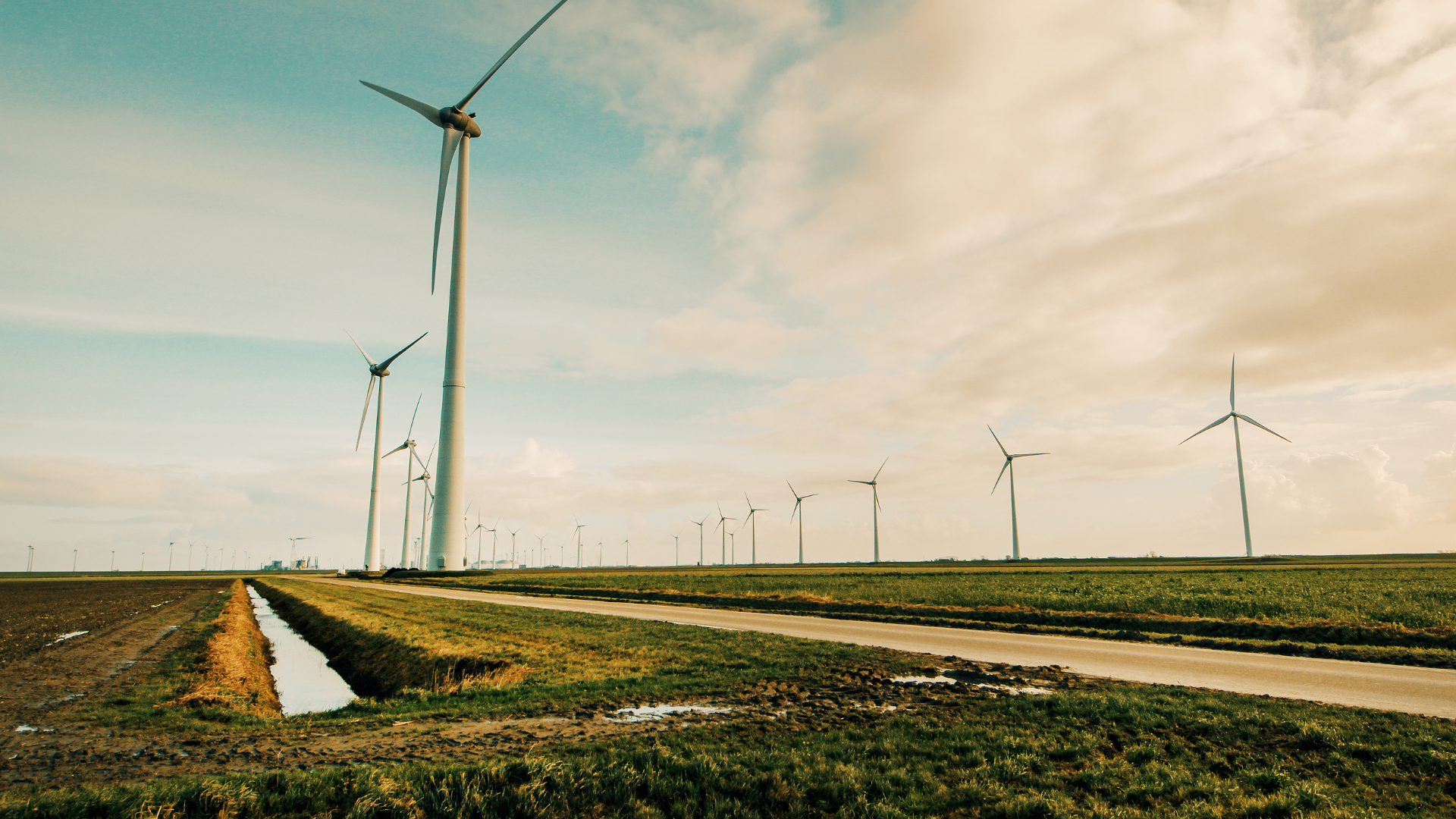
System Transformation Pathways Initiative
The Systems Transformation Pathway Initiative will convene key Canadian agri-food system stakeholders to characterize a shared vision of the future agri-food system and then clarify critical pathways (e.g., technology, sourcing and production paradigms, financial models) and actions that can accelerate transformation towards this ideal future.
Interested in learning more or getting involved? Contact Carly MacArthur.
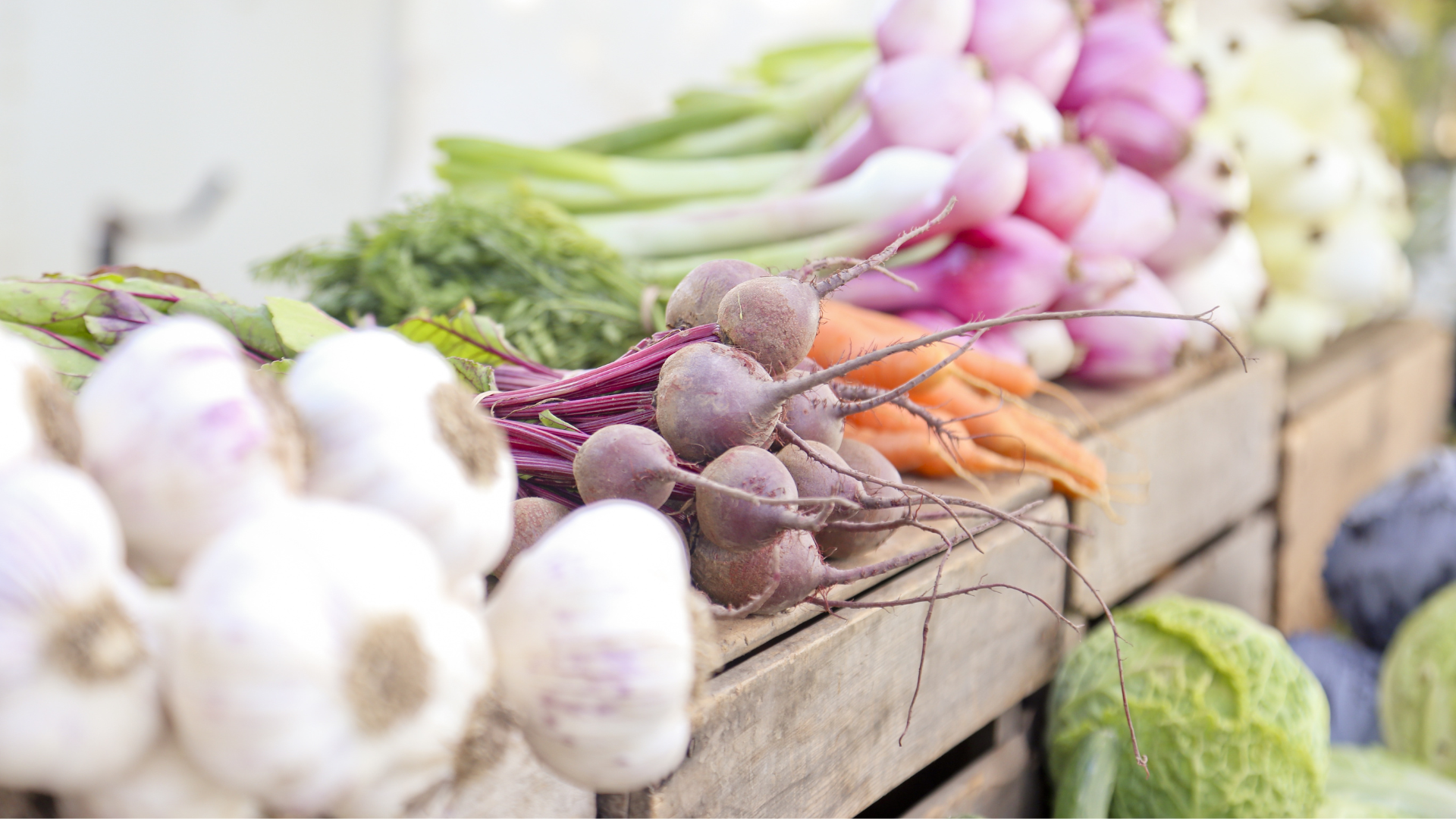
Future of Agri-food Event Series
The Future of Agri-food Event Series is convening key Canadian thought leaders to explore Canada’s role in the future of the agri-food system, and the key opportunities and challenges facing the sector. The series is jointly convened by the Ivey Centre for Building Sustainable Value, Ivey Academy, and the Institute for Sustainable Finance. The primary goal is to build awareness in key networks (executive leaders in business and finance) concerning key opportunities and challenges in agri-food for Canada, especially the critical issues associated with a just climate transition.
Featured Reports
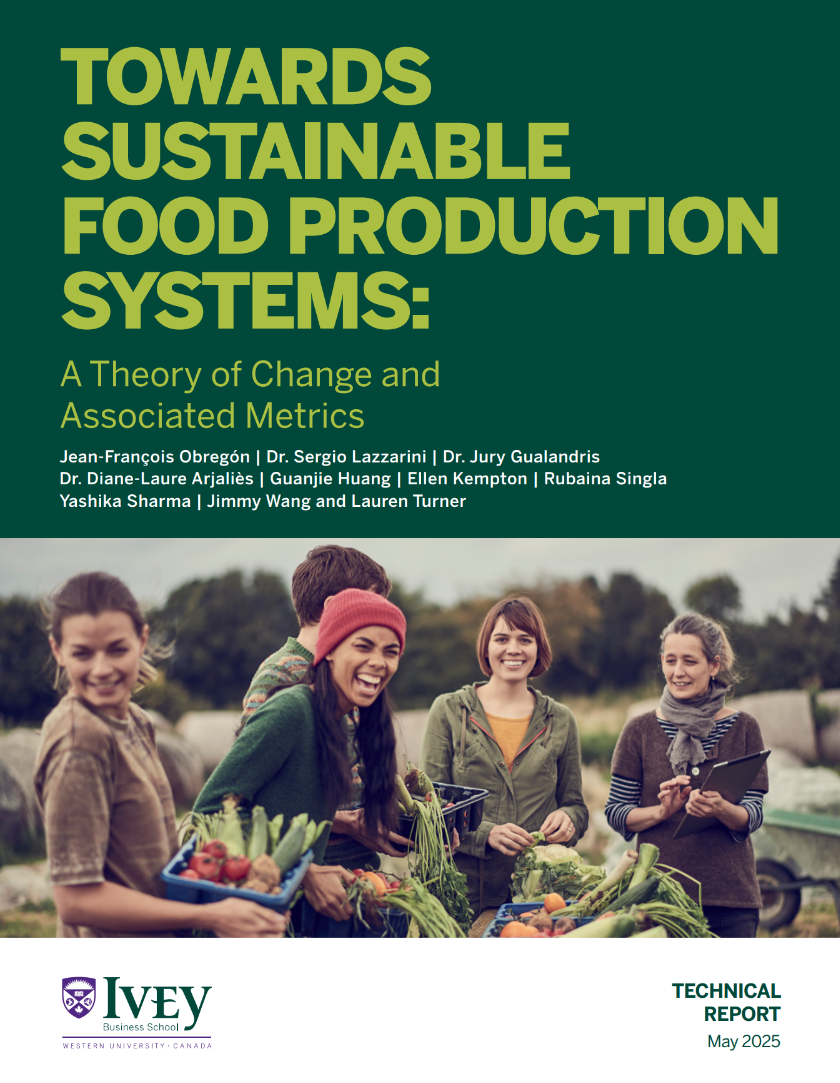
Towards Sustainable Food Production Systems: A Theory of Change and Associated Metrics presents a methodology to assess, benchmark and incentivize sustainable food production in southern Ontario. Our report explains how to incentivize actors in the food chain to adopt sustainable food production practices that prioritize soil health, such as cover cropping and rotational grazing.
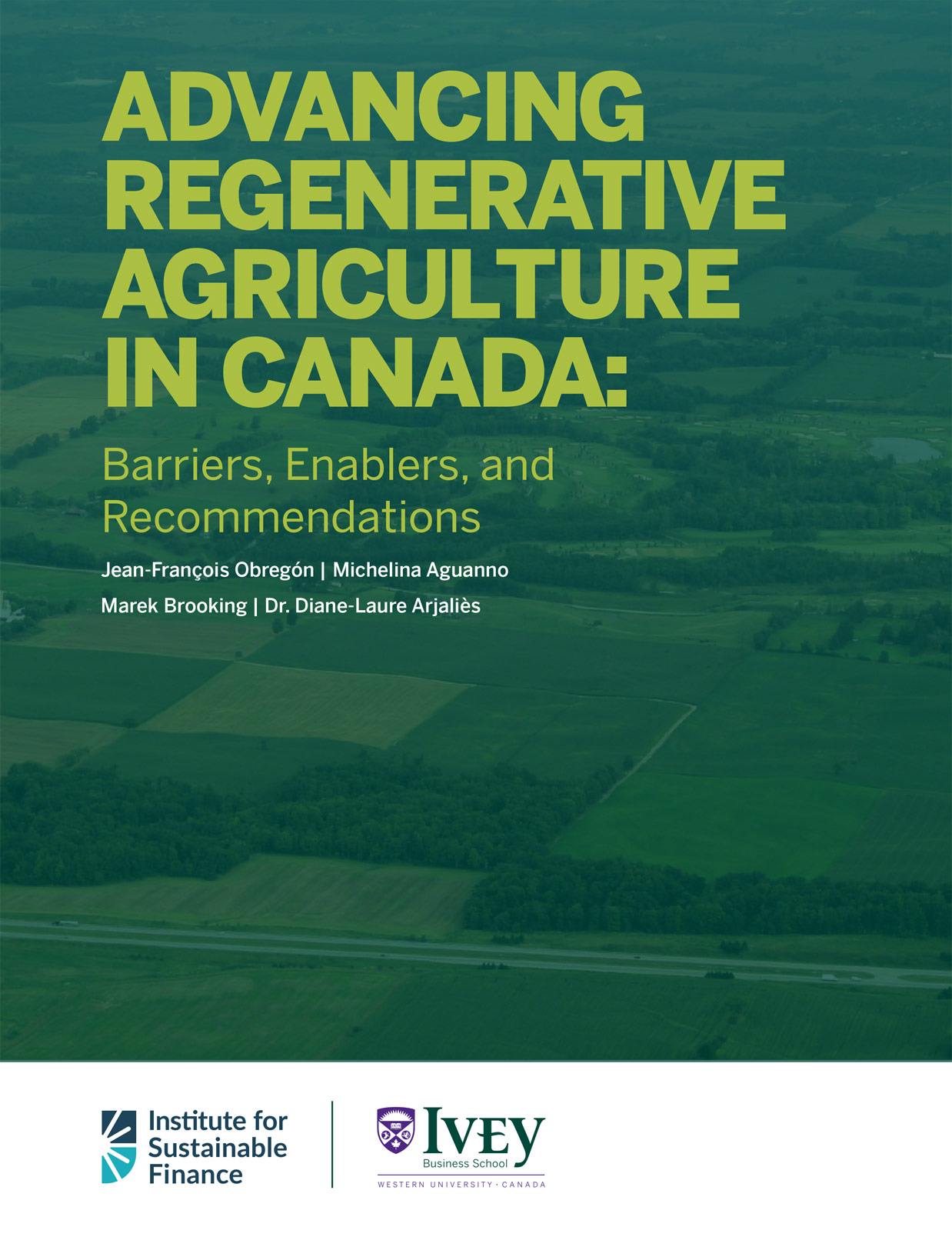
Advancing Regenerative Agriculture in Canada: Barriers, Enablers, and Recommendations, developed by the Ivey Sustainable Finance Lab with the support of the Institute for Sustainable Finance, provides a systemic overview of the current state of Canadian regenerative agriculture practices, and highlights key enablers for wider adoption by farmers
